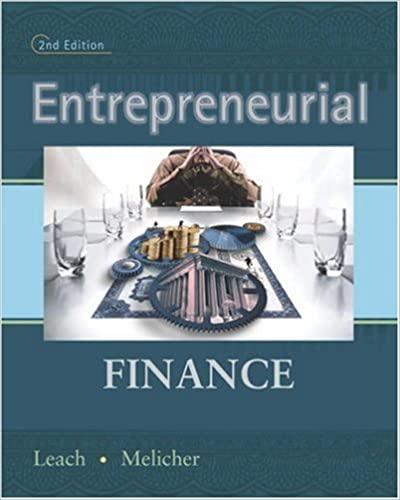Question
Financial statement of comprehensive income R'000 Income 1000 Gross profit 800 Operating profit 600 Finance charges (interest payments) 100 Tax 140 Net profit 360 Summarized
Financial statement of comprehensive income R'000
Income 1000
Gross profit 800
Operating profit 600
Finance charges (interest payments) 100
Tax 140
Net profit 360
Summarized statement of financial position
Total assets 11 000
Fixed assets 10 000
Current assets 1000
Total liabilities 7000
Interest bearing 7000
Equity 4000
Market data obtained from publicly available resources:
Current share price 150c
Beta 1.2
Bond YTM 3%
Industry average bond YTM 2%
Most recent dividend 5c
Estimated dividend growth rate 10 %
Shares outstanding 10 000 000
Bonds issued 700
Bond principle R10 000
Bond time to maturity 3 years
Excerpt from internal communication:
"... we have an established target debt ratio (total liabilities to total assets) of 50%. Despite our favorable credit rating, we aim to maintain a long-term average debt ratio of 50% in order to maintain borrowing capacity. Currently, the company's structure exceeds this target ratio due to the company recently undertaking some lucrative projects which were financed with debt..."
Assume a tax rate of 28%, a risk free rate of 5% and a market risk premium of 6%.
- How do you determine WACC at book costs and book weights
- How do you determine WACC at market costs and market weights
- How do you determine WACC at market costs and target weights
- How do we indicate which one of the three WACC's that you have calculated is the most correct one for the company to use.
- Briefly discuss why you chose to use this WACC.
- How do we use the free cash flow to the firm in order to determine the value of the company using the three respective WACC's that were calculated in 1,2 and 3. (You should do three calculations using the three WACC's as the relevant cost in the formula). Assume the following: depreciation charges is R5m, the company will see growth in FCF of 5% per annum for the near future and there are no expected changes in working capital requirements or capital expenditure.
Hints:
For the book cost of equity, use the dividend discount model and for market costs, CAPM.
Assume that the interest bearing debt is comprised solely of the issued bonds.
The bond coupon rate can be determined from the financial statements.
Step by Step Solution
There are 3 Steps involved in it
Step: 1

Get Instant Access to Expert-Tailored Solutions
See step-by-step solutions with expert insights and AI powered tools for academic success
Step: 2

Step: 3

Ace Your Homework with AI
Get the answers you need in no time with our AI-driven, step-by-step assistance
Get Started


